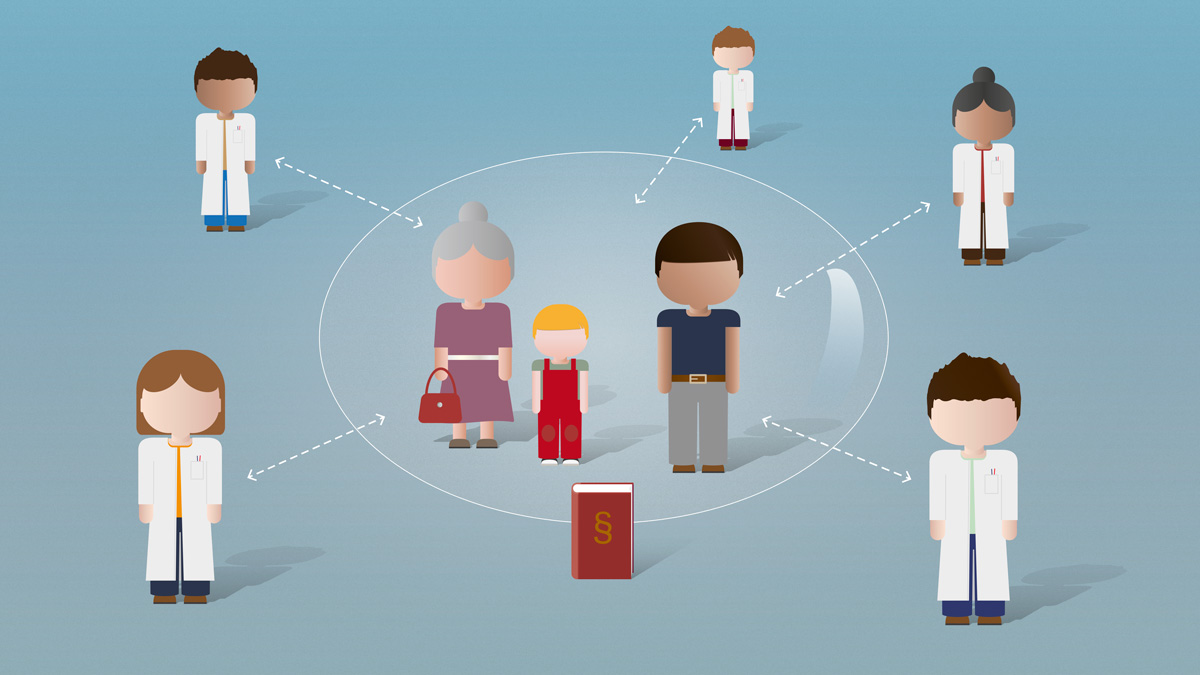Scope
The Act regulates research with healthy and sick persons of all age groups, whereby there are special provisions for particularly vulnerable groups such as children, pregnant women, persons lacking capacity, persons in emergency situations or prisoners. Research on deceased persons is also regulated, as is research on embryos (in vivo) and foetuses after abortion or stillbirth. Also within the purview of the Act is research involving human body parts (“biological material”) and health-related personal data.
The Act does not, however, apply to research projects involving IVF embryos – which are governed by the Stem Cell Research Act (StRA) – nor to research projects involving anonymised biological material or anonymously collected or anonymised health-related data.
The Act does not apply to individual attempts to treat patients or case studies that result in no generalisable findings. Nor does the Act regulate questions that do not concern either diseases or basic research. However, if such a research project involves an intervention in or an impact on the human body, for example an operation, blood sample or diagnostic imaging (computed tomography or magnetic resonance imaging), the Act is again applicable.
Development and entering into force
Article 118b of the Federal Constitution (Cst), which was adopted by the electorate on 7 March 2010 with a 77.2% majority, endows the Federal Government with expanded authority for regulating human research. It provided the constitutional basis for the development of the Federal Act on Research Involving Human Beings (Human Research Act, HRA), which Parliament adopted on 30 September 2011. On 20 September 2013, the Federal Council issued implementation ordinances, which regulate specific items of the law in detail. The HRA, the Human Research Ordinance (HRO), the Clinical Trials Ordinance (ClinO) and the HRA Organisation Ordinance (OrgO-HRA) entered into force 1st January 2014. The Ordinance on Clinical Trials with Medical Devices (ClinO-MD) entered into force on 26 May 2021. On June 7, 2024, the Federal Council adopted the partial revision of the ordinances (HRO, ClinO, ClinO-MD, OrgO-HRA). The amended ordinances entered into force on November 1, 2024, with the exception of the transparency provisions, which will enter into force on March 1, 2025. More information can be found on the page «Amendments to the HRA ordinances».
Ordinances
Clinical trials are the subject of the ClinO and the ClinO-MD. Since 2021, the ClinO-MD regulates clinical trials involving medical devices. These two ordinances formulate the requirements for conducting such trials. Furthermore, the ordinances regulate authorization and notification procedures and the tasks and responsibilities of ethics committees, Swissmedic and the Federal Office of Public Health. The registration of clinical trials and the public access to the registry is also set out in these ordinances.
The HRO determines “the requirements for the conduct of human research projects with the exception of clinical trials” and regulates the authorisation and notification procedures for such projects.
The OrgO-HRA regulates the organisation of the research ethics committees and the coordination office.
Enforcement
The cantonal ethics committees and the Agency for Therapeutic Products (Swissmedic) are the agencies primarily responsible for enforcement of the Act. The enforcement bodies make sure the statutory requirements are complied with. They review the applications, authorise the projects and monitor their conduct.

